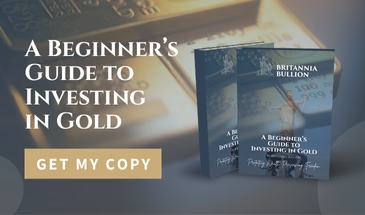
Limits Are Coming. Your Money May Not Be Yours.
By Kane White, CEO & Father
Today’s financial landscape feels a lot like 2008 all over again, but with fewer warnings.
Let's break down what’s happening and what you need to consider while you still can.
1. Withdrawal Limits, They're Tightening
Every account has a cap, even if you have £85,000 in your bank account.
-
Barclays and HSBC cap daily ATM withdrawals at £300–£500, with higher limits only by special request.
-
Some Premier or private clients may see £1,000–£2,000 limits, but these are rare and subject to conditions. The Sun
There is a great deal of chatter surrounding banking limits, and more worryingly, banking control. The government can almost see where every penny is going (over 1k). Look below, on Google...

That means money isn't always free; it’s limited, tracked, and controlled, and I think it will only get worse.

2. Housing Defaults on the Rise
Mortgage stress is ticking up again. The US mortgage delinquency rate hit 3.98% by late 2024—the highest since 2011. While US-based, it's part of a global echo. https://www.telegraph.co.uk/business/2025/01/16/mortgage-defaults-surge-for-longest-stretch-since-2007/ MBA
In the 1980s, the average UK house price was around £24,000. The average full-time wage was about £7,000 a year.
That meant a typical home cost just over 3 times the average salary.
Today, the average UK house costs over £285,000, while the average wage is around £34,000, which is more than 8 times the average salary.
Forty years ago, one income could cover the mortgage, bills, and still leave room for holidays, savings, and a decent standard of living.
Today, many families with two incomes are barely keeping their heads above water.
The numbers don’t lie. The system has changed, the rules have changed, but most people haven’t been told.
This isn’t just statistics; it’s people struggling to keep a roof over their heads.
3. The Dollar Is Weakening, Even Regulators Are Worried
The Bank of England is instructing UK banks to assess their vulnerability to dollar instability, especially in light of Trump’s return. That’s not speculation. That’s stress-testing. FDIC+9X (formerly Twitter)+9The Sun+9Bank of England+5Stocktwits+5GOV.UK+5
Meanwhile, in the U.S., Treasury Secretary Scott Bessent warns that the Federal Reserve is losing $100 billion a year, while spending billions unnecessarily, raising questions about the security of the currency. Fortune+8X (formerly Twitter)+8Facebook+8
4. What This All Means
-
Limits on cash access
-
Risk of bank bail-ins
-
Currency uncertainty
-
Inflation is eating real spending power
-
Rising defaults signalling more profound instability
All signs point to a system under stress.
5. Gold: The Only Asset That Stands Apart
I’m not selling panic. I’m offering perspective.
-
Gold has zero counterparty risk. You hold it. You control it.
-
It’s a Tier 1 asset under Basel III, meaning banks and governments fully recognise it as accurate, tangible value.
-
Central banks worldwide are stocking up; they’re buying gold because they can’t buy trust.
Gold doesn’t crash. It doesn’t glitch with a digital outage.
It doesn’t change depending on who’s in power.
When everything else has limits, the gold in your hand doesn’t.
6. So What Do You Do Now?
-
Wait for panic and join the masses?
-
Or act early, be secure, clear-minded, and protected?
Your money is not always yours when the system is in motion.
Gold is the only asset you physically own, as simple as that.
We don’t give advice. We give clarity.
If you want to discuss how to hold value, not just hear about it, my door is always open.
Until next time,
Kane White
CEO, Britannia Bullion
Father. Protector. Observer of the obvious.
kane@britanniabullion.com | +44 7446 482152 | WhatsApp

